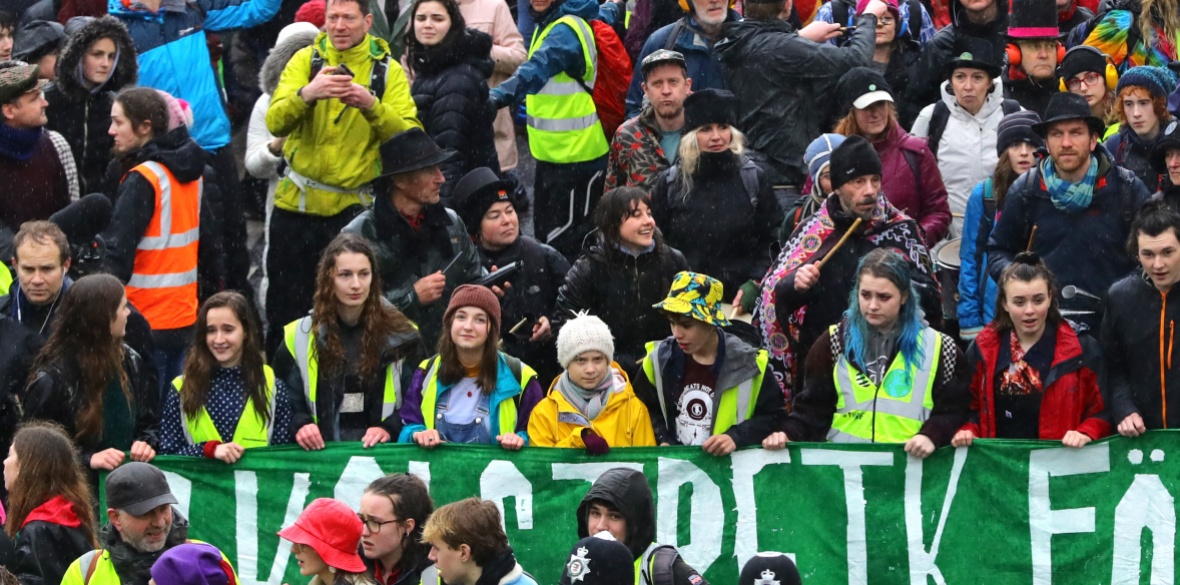TODAY’S climate strike showed the strength of feeling, commitment and levels of organisation of the youth climate-strike movement. They are an inspiration to the rest of the working-class movement.
The young people at the forefront of this movement have recognised what has been ignored for far too long by politicians, big business, and even some in the labour movement — that we are in the grip of a full-blown environmental crisis and that we do not have long to take decisive action before irreparable damage is done to the natural world and to our societies.
And yet we must be clear that the crisis is not being ignored by politicians and by big business because they don’t understand. It is being ignored because that is the nature of capitalist production. The driving force of our economic system is profit, the need for capital to produce the maximum amount of surplus value in the shortest-possible time frame. That leads to what Marx called the “anarchy of production.”
Because short-term profit is the immediate aim, capitalists (and their representatives in the political system) are incapable of taking genuinely long-term and wide-scale decisions. Immediate profits matter most. Hence it has taken so long to recognise the very existence of the crisis.
But we should also be clear that the ruling class on an international scale has never missed an opportunity to exploit a good crisis. This we have seen during the economic downturn of the late 1970s. In order to maintain and increase the rate of profit, economic shock tactics and engineered confrontations were used to smash the strength of the Trades Union movement in Britain, the US and many other countries.
Mass privatisation of public utilities, with continuing government investment, served to artificially maintain profits in the services sector, essentially by direct subsidy from taxation into shareholder profits. Thus, neoliberalism was born.
Similarly, the 2008 economic crisis was used as an opportunity to usher in more than a decade of austerity. The slashing of welfare, investment in schools, hospitals, local democracy, children’s centres, youth services, adult social care reduced once again the tiny slice of the pie received by working people in the form of social provision.
At the same time, mass casualisation of the workforce, a punitive benefits system and a massive increase in in-work poverty have allowed employers to hold back wage increases and weakened the power of trade unions, while thousands face the dire human consequences of these policies.
So, when it comes to the climate crisis, it matters what our demands are. It matters what the proposed solution looks like. There will be those already considering how one possible response to the climate crisis would be government subsidies to private business to enable them to transition to being carbon-neutral, without experiencing a dip in profits.
There will be those looking at the lucrative opportunities in consultancy that will be created and paid for with public money. So calling for the government to invest in transition to a zero-carbon economy is not enough.
If this is the response, once again we will see a massive transfer of wealth into the pockets of those who caused the crisis in the first place.
Neither is it acceptable for advanced capitalist countries to place the burden for tackling climate change on the Third World, denying our ex-colonies the right to economic development.
What is needed is a clear plan to assert public control over public services, including public transport, over major industrial production and over freight transport.
This would allow the development of a comprehensive industrial strategy, including transition to carbon-neutral production, which would harness the power of economic development for the good of human society and the natural world we live in. Only by ending the ‘anarchy of production’ and replacing it with democratic control can we really tackle the climate crisis.










